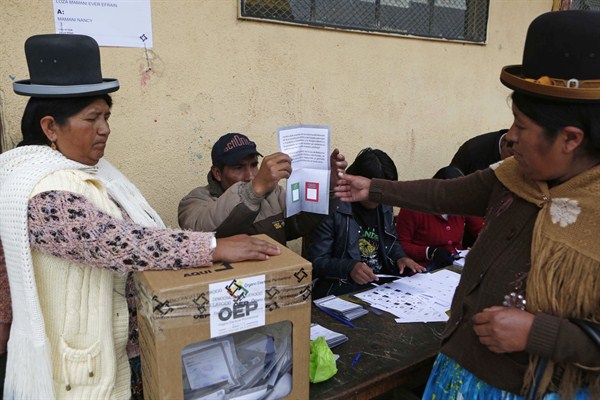Last weekend, Bolivian voters went to the polls and did something remarkable: They told their sitting president—a popular and successful one—that they will not allow him to remain in power for as long as he wishes.
The voters’ rejection of a constitutional amendment that would have allowed President Evo Morales to run for a fourth consecutive term came as a painfully unexpected blow to a politician grown accustomed to landslide victories and popular adulation. The vote sent shockwaves across Bolivia. More importantly, it sent an important message to other politicians with autocratic tendencies in the region: Latin American democracy is maturing, and populist-driven passion is losing its hold on the public.
The Bolivian referendum is a positive sign for democratic forces in a region where the long road toward true democracy has gone through many challenging phases. Latin America endured an epidemic of military coups followed by a long period of flawed democracies dominated by small elites.

